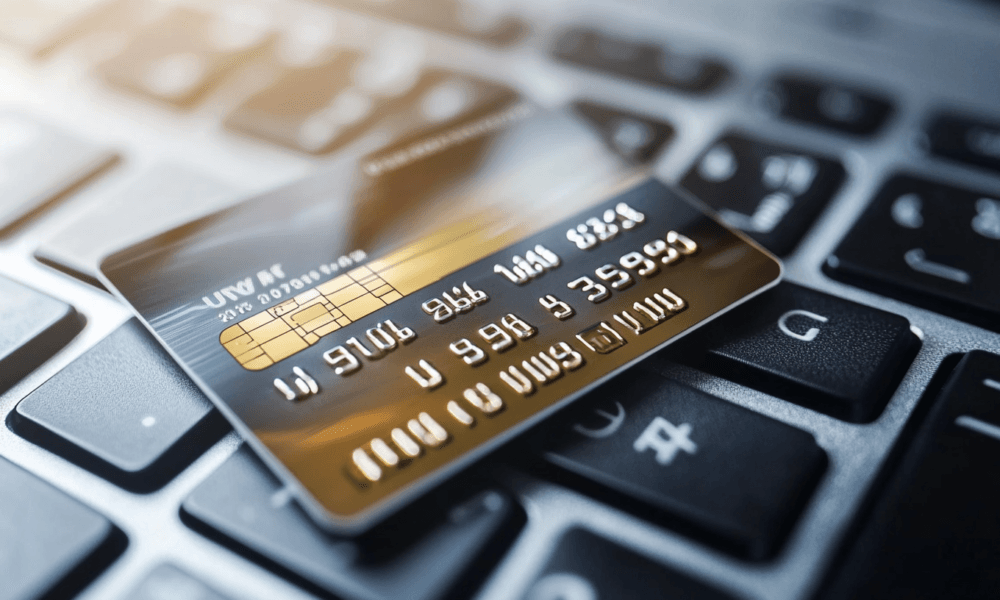How to Use Credit Wisely and Avoid Debt Traps
Credit is a powerful financial tool that, when used responsibly, can help you achieve your financial goals, build a positive credit history, and gain access to opportunities like buying a home or funding a business. However, if not used wisely, credit can lead to a dangerous cycle of debt, financial stress, and damaged credit scores. This article will provide you with a comprehensive guide on how to use credit wisely, understand the risks involved, and avoid falling into debt traps.
Understanding Credit and Its Types
Before diving into how to use credit wisely, it’s essential to understand what credit is and the different types of credit available.
Credit is essentially borrowed money that you agree to repay, typically with interest. There are two main types of credit:
1. Revolving Credit
Revolving credit allows you to borrow up to a certain limit, repay it, and borrow again. The most common form of revolving credit is a credit card. Revolving credit offers flexibility, as you can use it as needed, but it can also lead to high-interest debt if not managed properly.
2. Installment Credit
Installment credit involves borrowing a fixed amount of money and repaying it in regular installments over a set period. Examples include car loans, mortgages, and personal loans. Installment credit is easier to manage as it comes with a fixed repayment schedule, but it’s important to ensure you can meet the payments to avoid falling behind.
How to Use Credit Wisely
Using credit wisely requires discipline, understanding how interest works, and a commitment to managing your finances responsibly. Here are some strategies to help you make the most of credit without falling into debt traps.
1. Understand Interest Rates and Fees
Interest rates are a crucial factor in credit usage. When you use a credit card or take out a loan, the lender charges interest on the borrowed amount. High-interest rates can significantly increase the total amount you repay, especially if you only make the minimum payment each month.
- Annual Percentage Rate (APR): The APR represents the annual cost of borrowing, including interest and fees. Look for credit cards and loans with a low APR to minimize costs.
- Penalty Fees: Many credit cards charge fees for late payments, cash advances, or exceeding your credit limit. Be aware of these fees and avoid actions that trigger them.
2. Pay Your Bills on Time
One of the most important aspects of using credit wisely is making timely payments. Late payments can result in late fees, increased interest rates, and a negative impact on your credit score. To avoid missing payments, consider setting up automatic payments or calendar reminders for your due dates.
A strong payment history accounts for 35% of your credit score, according to FICO. Consistently paying your bills on time is the most effective way to maintain a positive credit history and improve your credit score.
3. Keep Your Credit Utilization Low
Credit utilization refers to the percentage of your available credit that you’re using. For example, if you have a credit card with a $5,000 limit and a $1,000 balance, your credit utilization rate is 20%. Experts recommend keeping your credit utilization rate below 30% to maintain a good credit score.
High credit utilization can indicate that you’re over-reliant on credit, which may negatively impact your credit score and make it more challenging to secure loans in the future. Pay down your balances whenever possible and avoid maxing out your credit cards.
4. Avoid Carrying a Balance
Carrying a balance on your credit card from month to month can lead to high-interest charges, especially if your interest rate is high. Ideally, you should pay off your credit card balance in full each month to avoid interest. If this isn’t possible, try to pay more than the minimum payment to reduce your balance and minimize interest costs.
5. Monitor Your Credit Report Regularly
Your credit report provides a detailed summary of your credit history, including your credit accounts, payment history, and any negative marks like late payments or collections. Monitoring your credit report regularly helps you identify errors, detect fraudulent activity, and stay informed about your credit health.
You’re entitled to a free credit report from each of the three major credit bureaus—Equifax, Experian, and TransUnion—once a year through AnnualCreditReport.com. Reviewing your credit report at least once a year can help you stay proactive about managing your credit.
6. Limit Credit Applications
Each time you apply for credit, a hard inquiry is added to your credit report, which can temporarily lower your credit score. If you apply for multiple credit cards or loans in a short period, the impact can be significant. Only apply for credit when necessary, and be strategic about your applications.
Avoiding Debt Traps
Debt traps occur when individuals accumulate more debt than they can handle, leading to a cycle of borrowing, missed payments, and escalating interest charges. To avoid debt traps, it’s crucial to be mindful of your borrowing habits and adopt effective strategies to manage your debt.
1. Create a Budget
A well-structured budget is essential for managing your finances and avoiding debt. By tracking your income and expenses, you can allocate a specific amount toward your credit card payments each month. Budgeting helps you understand your spending habits and identify areas where you can cut back to reduce debt.
2. Emergency Fund
An emergency fund is a financial safety net that can help you cover unexpected expenses without relying on credit cards or loans. Ideally, your emergency fund should cover three to six months’ worth of living expenses. Having an emergency fund reduces your dependency on credit and helps you avoid high-interest debt during financial emergencies.
3. Consolidate Debt When Needed
If you have multiple high-interest credit card balances, debt consolidation may be a useful strategy to reduce your interest payments and simplify your monthly obligations. Consolidation involves taking out a new loan to pay off your existing debts, ideally at a lower interest rate. Personal loans or balance transfer credit cards can be helpful tools for consolidating debt, but it’s important to carefully consider the terms and fees.
4. Avoid Payday Loans
Payday loans are short-term, high-interest loans designed to provide quick cash. While they may seem like a convenient solution, payday loans often come with extremely high-interest rates—sometimes exceeding 400% APR—making them a common cause of debt traps. If you’re struggling to make ends meet, consider other options, such as negotiating with creditors or seeking assistance from a credit counseling agency.
5. Seek Help When Needed
If you’re struggling with credit card debt and finding it difficult to make payments, don’t hesitate to seek help. Credit counseling agencies offer services to help you develop a debt management plan and negotiate with creditors. They can also provide financial education to help you improve your credit habits.
Non-profit credit counseling agencies, such as the National Foundation for Credit Counseling (NFCC), offer free or low-cost services and can help you get back on track with your finances.
The Importance of Building Good Credit
Building good credit is crucial for accessing favorable financial opportunities, such as low-interest loans, mortgage approvals, and even job offers. A good credit score shows lenders that you’re a responsible borrower who can be trusted to repay borrowed funds. Here are some benefits of having good credit:
- Lower Interest Rates: With good credit, you can qualify for loans and credit cards with lower interest rates, saving you money over time.
- Better Loan Terms: Lenders are more likely to offer favorable terms, such as higher borrowing limits and flexible repayment options, to individuals with good credit.
- Access to Housing: Landlords often check credit scores to determine whether a potential tenant is reliable. Good credit can improve your chances of securing rental housing.
- Job Opportunities: Some employers check credit history as part of the hiring process, particularly for positions that involve handling money or financial responsibility. Good credit can be an asset in these situations.
Conclusion
Using credit wisely and avoiding debt traps requires a proactive approach to managing your finances, understanding the costs associated with borrowing, and making responsible decisions about spending and repayment. By paying your bills on time, keeping your credit utilization low, monitoring your credit report, and creating a solid financial plan, you can harness the benefits of credit while minimizing the risks of falling into debt. Remember that building good credit is a long-term endeavor, and with discipline and careful planning, you can achieve financial stability and success.




No Comment! Be the first one.